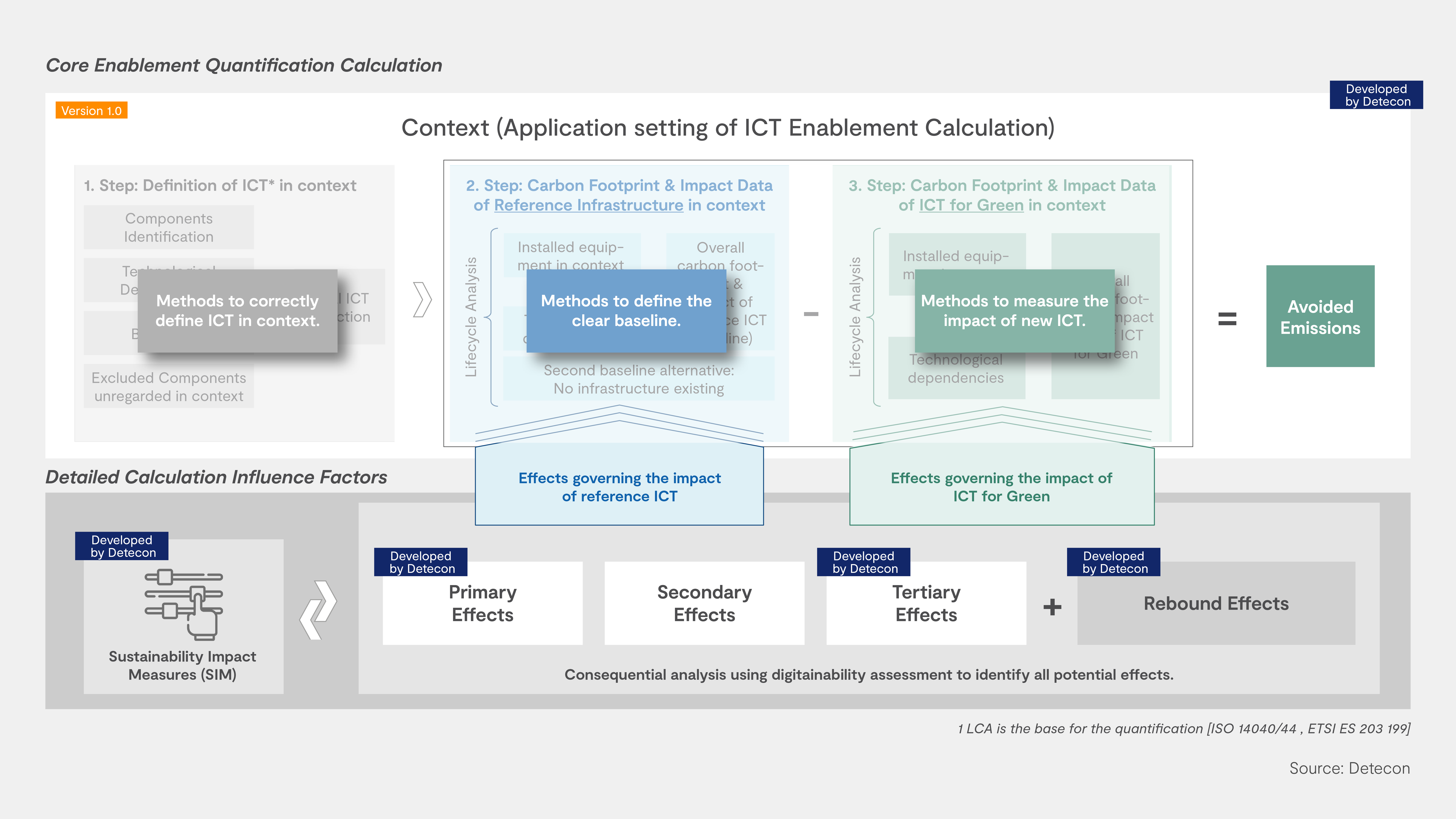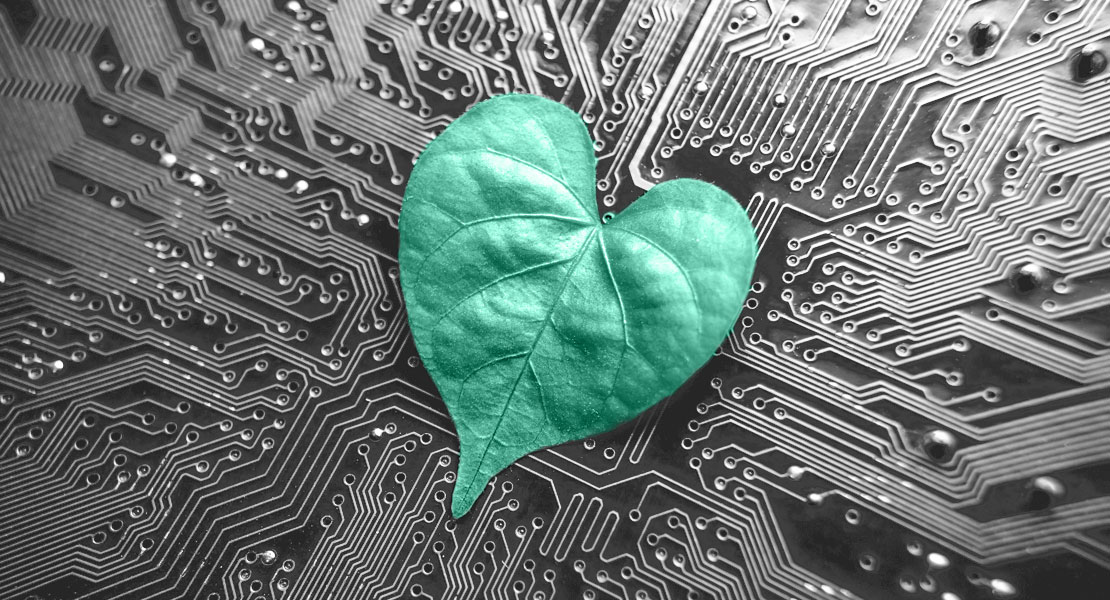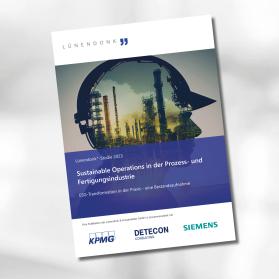Anyone addressing this question must place it in the overall context of sustainability: What actions does a company need to influence the impact of #sustainability positively? What are the next steps to a holistic assessment of ICT innovation in a standardized way? What order of effects must be considered to get a complete picture? To answer these questions, Detecon developed the ‘ICT Enablement Potential Framework,’ presented by Christian Maasem at the 14. "Symposium on ICT, Environment, Climate Change and Circular Economy", organised by ITU, in Rome.
5G, artificial intelligence, data analytics, cloud computing – all these enablers of the information age will transform industrial processes by cutting energy use, lowering carbon emissions, and providing a more efficient, transparent, and safer work environment.
Recent evidence suggests that the number of disaster-related deaths has fallen by two-thirds because of the increased monitoring and alert systems enabled by ICT. Various ICT solutions spanning from early-warning analysis, natural disaster monitoring, command and dispatch, and post-disaster assessment, focusing on the region's vulnerability to large-scale natural disasters and flash floods during the increasingly severe wet season, support sustainable action and mitigate the impact of climate change. It is estimated that ICT solutions can help reduce global greenhouse gas emissions by up to 15 percent by 2030 while being responsible for only 1.4 percent of the global carbon footprint.
Potential of mindful use of ICT technologies
We can achieve more reductions in GHG (greenhouse gas) emissions if we implement them more mindfully. Why mindfully?
ICT technologies if scaled mindfully across industries could help in cutting GHG emission by 20% by 2050. Industries can already reduce their emissions by 4-10% by quickly adopting digital technologies. However, ICT also has a growing "carbon footprint" from greenhouse gases (GHG) released from all its life cycle stages. ICT is estimated at ca. 1.8%–2.8% of global GHG emissions in 2020.
These estimates may carry some uncertainties but give us a reasonable idea of the impact of ICT. This includes embodied emissions (the GHG emissions released from the extraction of raw materials required, the manufacturing process, and transport to the business or user), use or operational emissions (from energy use and maintenance), and end-of-life emissions (disposal).
No consensus yet on methods for monitoring impacts
Yet estimates of ICT's footprint and whether it is growing in impact or held stable or even reduced by efficiency gains is open for discussion. Many reports point out the ICT's potential to decarbonize other sectors, also referred to as 'enablement potential' in the pathway to carbon neutrality and foster sustainability.
But there is no clear consensus on methods to monitor the consequential effects of ICT, and are often faced with fragmented reporting, lack of data for interrogatability, the potential conflict of interests, unclear scope, and boundaries of ICT infrastructure in analysis that leaves out specific ICT trends that lead to underestimation of the overall ICT footprint. Roughly 23% of ICT's total footprint is from embodied emissions, yet the share of embodied emissions for user devices specifically is ca. 50%. Efficiency improvements alone will not reduce embodied emissions drastically.
Framework to measure the "greeness" of ICT solutions
We at Detecon analyzed the latest trends in ICT enablement discussion and computation approaches to support our clients in their digital and green transformation journey by helping them measure the enablement potential of ICT considering complexities in certain context and industry. The ‘ICT Enablement Potential Framework’ we developed utilizes the most recent knowledge, tools and techniques that are supportive of reporting the consequential impact of ICT for sustainability and green digital transition.

To reduce ICT emissions, collaborative efforts involving a broad range of stakeholders with a data-driven concrete action plan are required. It is clear from the existing investigation that significant reliance is placed on a switch to renewables and efficiency gains within and beyond the ICT sector for decreasing carbon footprint, which are the first steps toward sustainability. More in-depth assessments of ICT's effects and rebounds need to be evaluated with data lakes and collaborations for clear transformative actions.
Digitainability is our apporach
provides competitive advantage. Especially, with the effects of recent global uncertainties like pandemic, war and increase climate change impacts organizations are keen on transforming their businesses with the help of ICT technologies and hyperconnected digital technologies.
Digitalization with sustainability will be the next wave of change in business, and first achievers can gain 5-10 years of competitive edge. By embracing sustainability, organizations will reduce various forms of risks, generate returns, build resilience, and value creation for stakeholders. We at Detecon will be happy to help you in the development of a digital sustainability (digitainability) strategies that prepares your company for a sustainable future.








